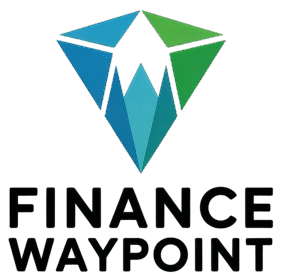If you’re looking to change the way you think about money, success, and financial independence, the Rich Dad Poor Dad lessons can be a powerful starting point. Robert Kiyosaki’s bestselling book offers timeless insights that challenge conventional beliefs about wealth and open the door to a smarter and more intentional financial life.
The book has profoundly changed how countless individuals view money and success in their lives. It contrasts two distinct perspectives on wealth, one from his biological father, who struggled financially throughout his life, and the other from his friend’s dad, a highly successful entrepreneur who achieved great financial success.
Personally, Rich Dad Poor Dad was a turning point in my life.
Reading it opened my eyes to the importance of financial literacy and the distinction between assets and liabilities. It taught me that true wealth isn’t about how much you earn, but how effectively you manage and grow your money.
Here are some key takeaways from the book that can truly transform your approach to finances and empower you to take control of your financial destiny.
Key Takeaways
- Understanding the difference between assets and liabilities is crucial for building wealth.
- Financial education is vital; schools often miss teaching practical money management skills.
- Shifting from a mindset of working for money to making money work for you is essential for financial freedom.
- Entrepreneurship can be a powerful path to wealth; don’t fear failure but embrace learning from it.
- Teaching kids about money early sets them up for a financially secure future.

Understanding The Mindset Shift
The Contrast Between Two Dads
So, Rich Dad Poor Dad talks a lot about how your mindset shapes your financial future. It all starts with the different ways Robert Kiyosaki’s two father figures thought about money.
One was his actual dad, a smart, educated guy who struggled financially. The other was his best friend’s dad, who didn’t have much formal education but became super rich.
The book really drives home the point that it wasn’t about how much they earned, but how they thought about money. The poor dad played it safe, while the rich dad took calculated risks and invested. It’s a classic tale of two paths diverging in the financial woods, this mindset shift is key to wealth creation.
How Mindset Influences Financial Success
Your mindset is like the GPS for your money, if you think money is scarce, you’ll probably make choices that keep you in that scarcity. But if you believe in abundance and opportunity, you’re more likely to spot chances to grow your wealth.
It’s not just about positive thinking, it’s about having a strategic approach when it comes to money and investments. Developing the investor’s mindset is a crucial aspect.
Shifting From Employee to Investor
Most people are taught to get a good job, save money, and retire comfortably, but Rich Dad Poor Dad challenges that whole idea, it encourages you to think like an investor, not just an employee.
This means learning how to make your money work for you, instead of working for money. It’s about acquiring assets that generate income, like real estate or businesses, rather than just relying on a paycheck.
It’s a big leap, but it’s what separates the financially free from everyone else, this is about financial independence.
Earning a high income is not enough, you need to understand how to manage that income, how to protect it, and how to invest it wisely. That’s the real key to building wealth.
The Importance of Financial Education
Why Schools Fail to Teach Money Management
It’s kind of wild when you think about it, but most schools just don’t teach you how to handle money.
You spend years learning about history or algebra, but budgeting? Investing? Forget about it. They expect you to just figure it out, which is a recipe for disaster for many people. It’s like sending someone into the wilderness without a map or compass.
No wonder so many people struggle with debt and financial stress. The system is flawed, and it’s up to us to fill in the gaps.
Investing in Your Financial Knowledge
The best investment you can make is in yourself, specifically in your financial knowledge. Read books, take courses, listen to podcasts, whatever works for you.
The more you understand about money, the better equipped you’ll be to make smart decisions. Don’t rely on others to manage your money; take control and become your own financial expert. It’s a continuous learning process, but it’s worth every minute. You can start by understanding the importance of financial literacy.
Learning from Real-World Experiences
Textbooks and classes are great, but nothing beats real-world experience. Start small, make mistakes, and learn from them.
Whether it’s opening a savings account, investing in stocks, or starting a side hustle, every experience will teach you something valuable. Don’t be afraid to take risks, but always do your homework first. The more you experiment and learn, the more confident you’ll become in your financial abilities.
Financial education isn’t just about numbers; it’s about understanding how money works and how to make it work for you. It’s about developing a mindset of abundance and creating a secure financial future.
Here are some ways to gain real-world experience:
- Start a budget and track your spending.
- Open a brokerage account and invest in stocks or ETFs.
- Start a side hustle and learn about entrepreneurship.
Assets vs. Liabilities Explained
Defining What Constitutes an Asset
Okay, so what is an asset anyway? It’s something that puts money in your pocket, plain and simple. It’s not just stuff you own; it’s stuff that generates income.
Think of it like this: if you have to keep paying for it, it’s probably not an asset. An asset is something that consistently brings in more money than it costs to maintain.
- Stocks that pay dividends
- Rental properties that generate positive cash flow
- Businesses that run without your constant involvement
Common Misconceptions About Liabilities
This is where things get tricky, a lot of people think their house is an asset, but is it really?
If you’re paying a mortgage, property taxes, and maintenance, it’s actually costing you money every month.
That’s a liability and it takes money out of your pocket, plain and simple. Understanding assets and liabilities is key to financial literacy, trust me.
The biggest misconception is thinking that because you own something, it’s automatically an asset. Ownership doesn’t equal asset status. It’s about cash flow.
Building a Portfolio of Income-Generating Assets
So, how do you actually build wealth?
You focus on acquiring assets, but not just any assets, they need to be income-generating ones. The goal is to create a portfolio where your assets are making more money than your expenses.
This is how you achieve financial freedom. It’s not about getting rich quick; it’s about building a solid foundation, think long-term, not short-term. Here are some ideas:
- Start a side hustle that can eventually become a passive income stream.
- Invest in dividend-paying stocks or bonds.
- Consider real estate, but be smart about it – focus on cash flow, not just appreciation.
| Asset Type | Potential Income | Risk Level | Liquidity |
|---|---|---|---|
| Rental Property | High | Medium | Low |
| Dividend Stocks | Medium | Medium | High |
| Online Business | High | High | Medium |
Making Money Work for You

The Power of Passive Income
Okay, so passive income sounds amazing, right? Like, money just showing up while you binge-watch your favorite shows. It’s not quite that simple, but the idea is to create income streams that don’t require constant, active work.
Think of it like planting a money tree – you put in the effort upfront, and then it (hopefully) keeps bearing fruit. Real estate rentals are a classic example, but there are tons of other options, like creating and selling online courses, writing an ebook, or even investing in dividend-paying stocks.
The key is to find something that aligns with your skills and interests, and then put in the work to set it up. It’s not a get-rich-quick scheme, but it can definitely help you build wealth over time. The concept of making money work for you is emphasized as a key to financial stability.
Strategies for Wealth Creation
Wealth creation isn’t just about saving every penny (though that helps!). It’s about strategically growing your money.
Here’s the thing: inflation eats away at your savings over time, so you need to invest in assets that will outpace inflation. This could mean investing in the stock market, real estate, or even starting your own business.
Diversification is key – don’t put all your eggs in one basket, spread your investments across different asset classes to reduce your risk. Also, don’t be afraid to take calculated risks, sometimes you have to step outside your comfort zone to achieve significant financial gains.
- Start investing early, even if it’s just a small amount.
- Reinvest your earnings to accelerate growth.
- Continuously educate yourself about investing.
Building wealth is a marathon, not a sprint, it takes time, discipline, and a willingness to learn and adapt. Don’t get discouraged by setbacks – just keep moving forward, and you’ll eventually reach your goals.
Investing Wisely for Long-Term Gains
Investing for the long term is all about playing the waiting game, it’s not about trying to time the market or chasing the latest hot stock. It’s about finding solid, reliable investments that will grow steadily over time.
Think about investing in index funds or ETFs, which offer broad market exposure and diversification. Also, consider investing in real estate, which can provide both rental income and appreciation over time.
The most important thing is to stay patient and avoid making emotional decisions based on short-term market fluctuations. Remember, the goal is to build wealth over the long haul, not to get rich overnight.
| Investment Type | Potential Return | Risk Level | Liquidity |
|---|---|---|---|
| Stocks | High | High | High |
| Bonds | Moderate | Moderate | High |
| Real Estate | Moderate to High | Moderate | Low |
| Index Funds | Moderate | Moderate | High |
The Role of Entrepreneurship in Wealth Building
Identifying Business Opportunities
Okay, so you want to be an entrepreneur? Great! But where do you even start? It’s not about having some crazy, never-before-seen idea. Sometimes, the best opportunities are right in front of you.
Think about problems you face every day, Is there a service you wish existed? A product that could be better? That’s your starting point. Look for inefficiencies, unmet needs, or things that are just plain annoying.
I remember when my neighbor started a dog-walking business just because everyone on our street was too busy to walk their pups. Simple, right? But it solved a problem and made him money.
Keep your eyes open, talk to people, and really listen to what they’re complaining about. That’s where the gold is.
The Benefits of Being Your Own Boss
Let’s be real, the idea of being your own boss is super appealing, no more clocking in, no more annoying meetings, and no more asking permission for vacation time. But it’s more than just freedom. It’s about control.
You control your time, your projects, and your income. You decide how much you want to work and what you want to focus on. Plus, there’s a huge sense of accomplishment that comes from building something from the ground up. It’s not easy, but the rewards can be amazing.
You get to see the direct impact of your hard work, and that’s a feeling you just can’t get working for someone else. Building wealth involves strategic asset acquisition, and entrepreneurship provides a direct path to that.
Overcoming Fear of Failure in Business
Alright, let’s talk about the elephant in the room: fear.
The fear of failing is a huge roadblock for so many people, it stops them before they even start, but here’s the thing: failure is part of the process. Everyone fails.
The key is to learn from it and keep going, don’t see failure as the end; see it as a lesson. A chance to tweak your approach and try again, start small, test your ideas, and don’t be afraid to make mistakes.
Entrepreneurship is presented as the ability to generate passive income. I know it’s easier said than done, but the more you put yourself out there, the less scary it becomes and remember, even the most successful entrepreneurs have faced setbacks. It’s how you handle those setbacks that defines you.
Teaching Financial Literacy to the Next Generation
It’s wild how much we expect kids to know when they leave school, but money management? That’s often left out. If we want our kids to be better off than we are, it’s on us to teach them the basics.

Instilling Money Management Skills Early
Start them young! I’m talking allowance tied to chores, clear explanations of needs versus wants, and maybe even a simple savings jar.
The earlier they grasp these concepts, the better. It doesn’t have to be complicated, just consistent.
Creating a Family Financial Plan
Get the kids involved in family budgeting, seriously.
Show them where the money goes each month, let them see the trade-offs you make. It’s a great way to teach them about financial literacy and responsibility. Plus, it opens up conversations about values and priorities. Maybe they’ll even stop asking for every single toy they see!
Teaching kids about money isn’t just about setting them up for financial success; it’s about giving them the confidence and skills to navigate the world on their own terms.
Overcoming Common Financial Myths
It’s easy to fall for financial myths. They’re everywhere, passed down through generations or pushed by industries that benefit from them. Let’s bust some of these myths and get you on a clearer path to financial independence.
Debunking the High Income Myth
It’s a common belief that a high income automatically equals wealth. That’s not always true. It’s not about how much you make, but how much you keep.
Someone earning a million dollars a year but spending $1.1 million is in worse shape than someone earning $50,000 and saving $10,000. Lifestyle inflation is real, and it can trap even high earners. The mindset shift is key.
Understanding the True Value of Your Home
Many people think of their home as their biggest asset.
While it can appreciate in value, it’s also a significant liability. Consider all the costs: mortgage payments, property taxes, insurance, maintenance, and repairs.
These expenses eat into your cash flow. A true asset puts money in your pocket, while a home typically takes money out. It’s important to differentiate between a place to live and an investment. Here’s a quick breakdown:
- Mortgage Interest
- Property Taxes
- Homeowner’s Insurance
Viewing your home solely as an investment can lead to poor financial decisions. It’s important to balance the emotional value of homeownership with its financial realities.
Rethinking Retirement Savings Strategies
The traditional retirement advice of saving a percentage of your income, like the 10% Savings Rule, might not be enough for everyone. It also assumes a certain level of financial stability, which isn’t the case for many.
Relying solely on a 401(k) or IRA can be risky, as these are subject to market fluctuations and tax implications.
Consider diversifying your retirement savings with other investments, such as real estate or business ventures. It’s about creating multiple streams of income that can support you in retirement. It’s about money concepts and understanding how to grow your nest egg.
Wrapping It Up: Your Path to Financial Freedom
The lessons from Rich Dad Poor Dad aren’t just for the wealthy, they’re for anyone willing to change their mindset about money. It’s about thinking differently, learning what really matters, and taking action.
You don’t need to be a financial genius to start making smarter choices. Just remember, it’s not about how much you make, but how you manage what you have.
Start small, keep learning, and watch your financial situation improve over time. The journey to financial freedom is a marathon, not a sprint, so stay focused and keep pushing forward.
Frequently Asked Questions
What is the main idea of Rich Dad Poor Dad?
The book teaches that the rich think differently about money than the poor. It emphasizes that it’s not about how much money you make, but how you manage and invest it.
Why is financial education important?
Financial education helps you understand how money works, so you can make better decisions about earning, spending, and investing.
What are assets and liabilities?
Assets are things that put money in your pocket, like investments or rental properties. Liabilities are things that take money out of your pocket, like loans or credit card debt.
How can I start making money work for me?
You can start by investing in assets that generate income, like stocks, real estate, or starting a business.
What role does entrepreneurship play in building wealth?
Entrepreneurship allows you to create your own income and build wealth by solving problems and meeting needs in the market.
How can I teach my kids about money?
You can teach them about money management by involving them in family budgeting, discussing financial decisions, and encouraging them to think creatively about making money.

